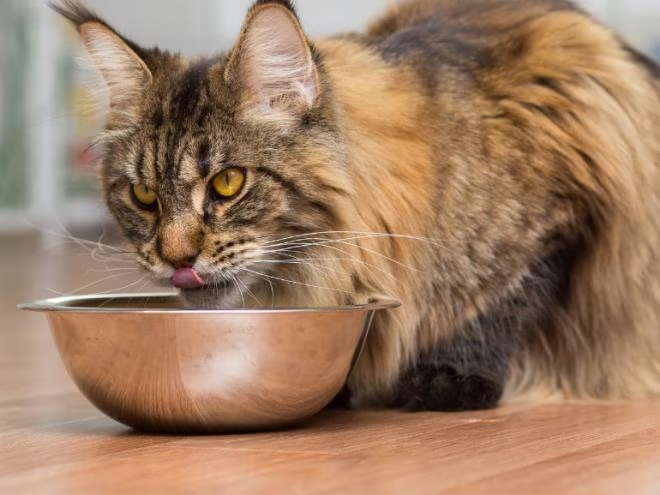Cannabidiol (CBD) oil has become increasingly popular for its potential health benefits for pets, including cats. With its natural anti-inflammatory, pain-relieving, and calming properties, CBD oil is being explored as a way to improve the quality of life for cats dealing with various health issues. However, before giving CBD oil to your feline companion, it’s important to understand how it works, potential benefits, and safety considerations.
What Is CBD Oil?
CBD is a non-psychoactive compound derived from the cannabis plant, specifically the hemp variety, which contains low levels of tetrahydrocannabinol (THC), the compound responsible for the “high” associated with marijuana. CBD interacts with the endocannabinoid system (ECS) in both humans and animals. The ECS plays a role in regulating various bodily functions, including mood, pain, immune responses, and more. While CBD itself doesn’t cause a high, it may provide a range of therapeutic effects for your cat.
Potential Benefits of CBD Oil for Cats
CBD oil has been reported to offer several potential health benefits for cats, including:
- Pain Relief: CBD may help reduce pain and inflammation in cats suffering from conditions like arthritis, injury, or general discomfort. Its anti-inflammatory properties can be especially useful for older cats with joint problems.
- Anxiety and Stress Relief: If your cat experiences anxiety due to separation, travel, loud noises, or other stressful situations, CBD may help provide relief by promoting relaxation and reducing nervousness.
- Improved Appetite: Cats with chronic illness or loss of appetite due to conditions like cancer may benefit from CBD’s ability to stimulate appetite and encourage eating.
- Seizure Management: Some research suggests that CBD oil may help manage seizures in cats with epilepsy or other neurological disorders by stabilizing the brain’s electrical activity.
- Better Sleep: CBD’s calming effects may promote more restful sleep for cats who suffer from insomnia or disturbed sleep patterns due to pain or stress.
- Skin Conditions: CBD oil may also have benefits for cats with certain skin conditions, such as dermatitis or allergies, due to its anti-inflammatory and anti-itch properties.
How to Use CBD Oil for Cats
When giving CBD oil to your cat, it’s essential to use a product specifically designed for pets. These products are typically made with hemp-derived CBD and contain safe dosages for cats. They also often come in flavorless or palatable options that are easier to administer.
Dosage
The correct dosage for your cat depends on factors like their size, the condition you’re treating, and the concentration of CBD in the product you’re using. It’s always best to start with a small dose and gradually increase it until you observe the desired effects. A general guideline for dosage is:
- Start with 0.1 to 0.5 mg of CBD per pound of body weight.
- Observe your cat’s response: If necessary, adjust the dosage incrementally over time.
- Consult your veterinarian: Especially if your cat has pre-existing health conditions, a veterinarian can help determine the appropriate dosage and ensure that CBD is a safe option.
Administration
CBD oil can be administered directly into your cat’s mouth, added to their food, or placed on a treat. However, some cats can be particularly finicky about new flavors or scents, so it may take some trial and error to find the best method for your cat. Using CBD oil as a supplement in their regular meals might be the easiest and most consistent way to provide it.
Safety Considerations
While CBD oil is generally considered safe for cats, there are a few things to keep in mind:
- Quality Matters: Always choose high-quality, third-party tested CBD products designed specifically for pets. Look for oils that have low levels of THC (less than 0.3%) to avoid any potential toxicity or side effects.
- Consult Your Veterinarian: Before introducing CBD oil, it’s important to talk to your veterinarian, especially if your cat is already on medication or has a medical condition. CBD may interact with certain medications, so professional guidance is key.
- Watch for Side Effects: While side effects of CBD in cats are rare, they can include drowsiness, diarrhea, or changes in appetite. If you notice any unusual behavior or adverse reactions, reduce the dosage or discontinue use and consult your vet.
- Avoid THC: THC is toxic to cats and should never be used. Always make sure that the CBD oil you choose contains no more than 0.3% THC.
- Start Low, Go Slow: Every cat is different, so it’s important to start with a low dose and monitor your cat’s reaction. Gradually increasing the dosage over time ensures that you find the right balance for your pet’s needs.
Is CBD Oil Legal for Cats?
In many places, CBD derived from hemp is legal and accessible for pets. However, laws surrounding CBD vary by country and state, so it’s important to check your local regulations before purchasing CBD oil for your cat.
Final Thoughts
CBD oil has shown promise as a natural remedy for various health concerns in cats, from pain and anxiety to seizures and skin issues. It can be a useful tool in managing chronic conditions and improving your cat’s overall well-being, especially when used as part of a comprehensive treatment plan. As with any new supplement or treatment, it’s important to consult with your veterinarian to ensure that CBD oil is the right choice for your cat and to determine the appropriate dosage.
By choosing high-quality, pet-safe CBD products and monitoring your cat’s response, you can help ensure they receive the full benefits of this natural remedy while minimizing any potential risks.



